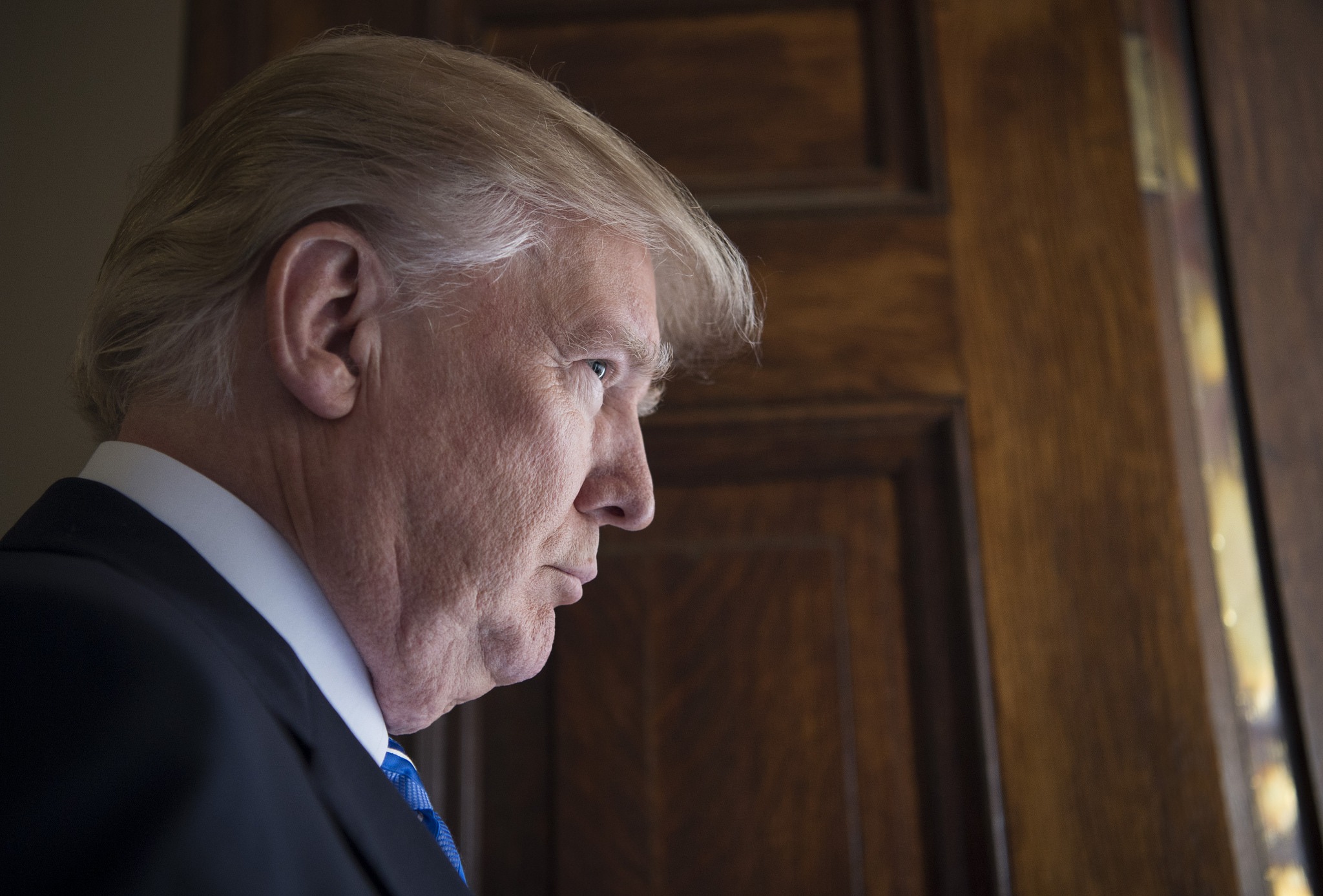
US President Donald Trump said on Sunday that it was “time to move forward in working constructively with Russia”.
During last year’s presidential election, Mr Trump promised to repair relations with Moscow and expressed admiration for the Russian leader Vladimir Putin, while at the same time he was attacking the NATO military alliance, which raised concerns that he would adopt a much softer line on Russia that his predecessor, Barack Obama. His intentions, however, have been hamstrung by the FBI probe into connections between his campaign aides and Russia.
Mr Trump repeatedly refused to endorse the conclusion of the US intelligence community that the Kremlin was behind last year’s cyber attack on Hillary Clinton’s campaign to undermine her and, therefore, help him win the presidency. He told Sergei Lavrov, the Russian foreign minister, in a private Oval Office meeting, which took place in May, that James Comey, the ousted FBI director, was a “nut job”. Mr Comey told Congress that Mr Trump had urged him to halt a probe into Michael Flynn, the former national security adviser, who resigned from his post after misleading the White House about his contacts with Russia’s ambassador to Washington in the waning days of the Obama administration. Mr Flynn allegedly signalled that the Trump administration would amend new sanctions implemented by Mr Obama over Russia’s meddling in the US presidential election. The Kremlin has denies that the Russian government had anything to do with cyber attacks, but Mr Trump came under pressure to raise the issue with Mr Putin on the margins of the G20 summit in Hamburg.
In 2015, Russia’s air forces, together with Iranian paramilitary guards and Iran-backed foreign Shia militia, rescued the Syrian regime of President Bashar al-Assad from defeat by mainly Sunni rebels. Mr Assad is desperate to reassert his control over the whole country after gaining the upper hand in the long-running civil war, following the fall of the last rebel stronghold in Aleppo in December. In April, Mr Trump ordered the launch of dozens Tomahawk missiles at Syria is response to the gas attack in the province of Idlib that caused the deaths of more than 70 people. Russia, which backs Mr Assad’s regime, said that the US military action was the act of aggression against a sovereign state. The Kremlin insisted that the Syrian air force had hit a depot of chemical weapons produced by rebels fighting against government forces.
The White House said last month that if Mr Assad conducted another chemical weapons attack, it would pay a “heavy price”, adding that Russia and Iran would also be blamed. The warning came after the US had detected activities at a Syrian air base, which suggested possible intend by Mr Assad to use chemical weapons again. Mr Trump wants to avoid a deeper involvement in Syria, but the rhetoric indicated that he would not hesitate to take action if the red line is crossed. The Syrian conflict threatens to become a flashpoint for a broader international confrontation.
Mr Putin is challenging the post-Cold War rules-based global order as he wants to replace it with a system based on regional hegemonies and seeks Russia’s return to superpower status on a par with America. In a speech in Warsaw in Poland on Thursday, Mr Trump urged Russia to halt its “destabilising activities” in Ukraine and cease support for hostile regimes, including Syria and Iran. He also said that “the US has demonstrated not merely with words but with its actions that we stand firmly behind Article 5”, the clause that underpins the NATO military alliance as it says that an attack on one member state is an attack on all and requires a mutual response. That was something he had refrained from doing when he attended his first NATO summit in May.
The first face-to-face meeting between Mt Trump and Mr Putin was supposed to last 30 minutes but lasted well over two hours. The two leaders discussed the Syrian crisis, the three-year conflict in eastern Ukraine as well as escalating tensions on the Korean peninsula. They agreed to implement a ceasefire in south-western Syria, which aims at ending hostilities, restoring stability and allowing free access of humanitarian aid. It is now up to Mr Putin to put pressure on Mr Assad to observe the ceasefire deal. Mr Trump also agreed to appoint a special representative for the conflict in Ukraine. Rex Tillerson, the US secretary of state, would hold regular meetings with Ukraine, Russia, Germany and France. Mr Putin said that the meeting set the scene for a new era of closer co-operation between Moscow and Washington.
Syria is a more promising area of cooperation than Ukraine. Mr Tillerson said in Kiev on Sunday that sanctions on Russia would remain in place until Moscow meets its commitments on Ukraine under the Minsk agreement.
Mr Lavrov claimed that Trump had told Putin he accepted his denials of Russia’s involvement in the US election. The Trump administration denies that.
DOD photo by U.S. Air Force Tech. Sgt. Brigitte N. Brantley